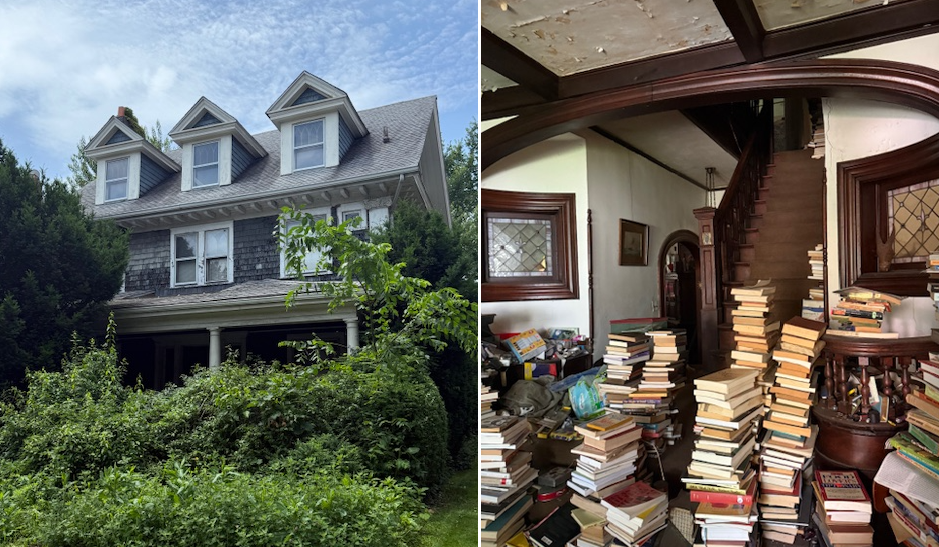It's Crazy in Copenhagen Too
We just got an email from a loyal Brownstoner who recently left Clinton Hill for Denmark. Unfortunately for her, she went out of the frying pan and into the fire: The market is just as wild in Copenhagen as it is in New York. And everyone just says the same “This can absolutely NOT go…
We just got an email from a loyal Brownstoner who recently left Clinton Hill for Denmark. Unfortunately for her, she went out of the frying pan and into the fire:
The market is just as wild in Copenhagen as it is in New York. And everyone just says the same “This can absolutely NOT go on for any longer!” Half the people here are eagerly waiting for the market to crash. We went to an open house for a wreck last weekend and it looked like a block party!!! And it wasn’t exactly cheap!
Kouun wo inorimasu, Julie!





Fun fact: Japanese and Finnish are actually linguistically related. Though most people assume that Japanese is a tonal, East Asian language like Chinese (and the Japanese did adopt the Chinese writing system), that’s actually not true. Both Japanese and Finnish stem from the Altaic family of languages that originated in Central Asia (along with Hungarian and Turkish).
And you thought this blog was just about Brooklyn Brownstones!
Hmmm, those pesky internet translators. It was supposed to mean “Good Luck”…
I have no idea what “Kouun wo inorimasu, Julie!” means og jeg taler dansk! It sounds more Finnish to me :-)Anyway, I agree with all the comments below and, Rich, you can go to boligsiden.dk It basically has 90% of what’s on the market in Denmark today. And as far as the comparison between your friends 15-room mansion on royal grounds and your 2000 sq. foot pad in Park slope, this comparison would no longer hold true today. My husband and I figured that prices outside the city center of Copenhagen are pretty much on par with prices in Brooklyn. Although if you go really high-end you will still get a deal. A huge late 19th century mansion by the sea, 6 miles outside Copenhagen will set you back “only” about 4M dollars. But, as you said, take-home income is a LOT less and cars are taxed (let me correct you) 180%. But regardless, life is really sweet in Denmark 🙂
Julie
Not sure what “kouun wo inorimasu” means, though it sounds vaguely Japanese. But as a former Copenhagen resident myself (taler du dansk, Julie?), I’d be interested in any links your friend can provide to Copenhagen real estate sites that give an idea of the market there.
What the earlier commenter said is true: the earth IS getting fuller. Increased population means increased need for housing. But Copenhagen happens to be one of the more booming parts of Europe these days: with the completion of a bridge to the southern Swedish city of Malmö and the creation of a cross-border economic region there, Denmark (and the so-called Øresund region of Denmark and southern Sweden) has become very attractive to investment capital. With their highly educated, English-speaking populations, this area of Denmark and Sweden has become a center of entrepreneurial activity, especially in the IT and pharmaceutical sectors. So it’s no surprise that, like in New York City, Silicon Valley, and similar regions, a surge in real estate prices has followed.
Still, for what I paid for my 2000-square-foot, garden duplex in the North Slope three years ago, some Danish friends in Hillerød (a northern suburb of Copenhagen, more or less equivalent to Westchester) could have bought a 15-room mansion on the beautiful grounds of Frederiksberg Castle, one of the royal residences … so it’s all relative. Most Danes’ take-home pay is significantly less than that of their counterparts in the U.S. (of equal education and professional accomplishment) because of the hefty taxes they pay there. Federal income tax rates START at 50% in Denmark, cars are taxed at a rate of 100%, etc. Of course, they don’t have to pay for education or health care.
Earth is getting full. ther is no bubble.